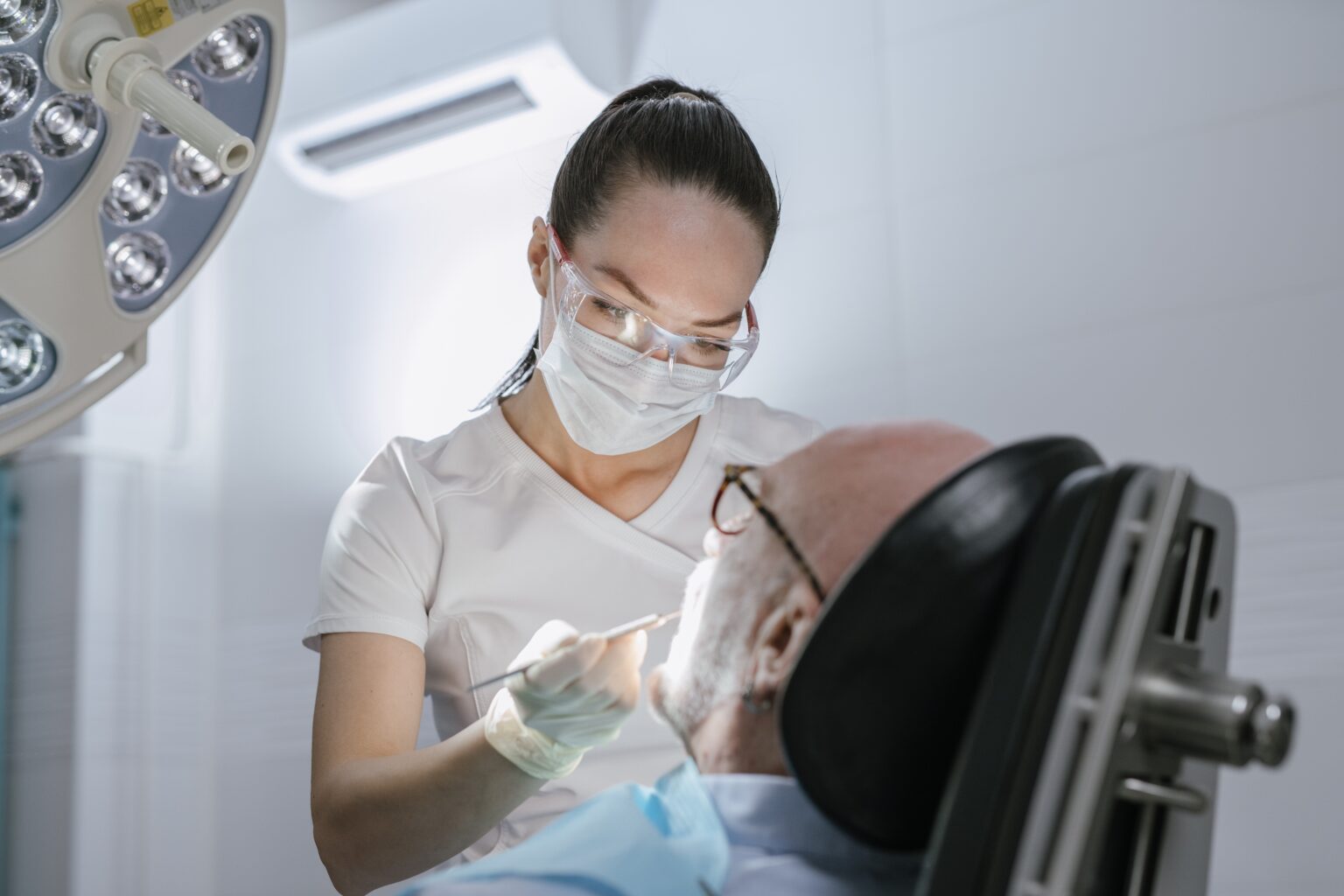Oral cancer, also called mouth cancer or oral cavity cancer, refers to the abnormal growth of cells in the throat or mouth, including the lips, tongue, floor of the mouth, cheeks, hard and soft palates, sinuses, and pharynx.
Everyone can develop oral cancer, but individuals over 40 are more susceptible to do so, especially those who smoke, drink alcohol, or have a history of HPV infection. Poor oral hygiene, a compromised immune system, and a family history of cancer are other risk factors.
What are the Symptoms of Oral Cancer?
Depending on the site and stage of the cancer, the signs and symptoms of oral cancer might vary, but some typical ones might include:
- A mouth lesion or sore that doesn’t go away after two weeks
- Areas of red or white in the mouth
- A lump, thickening, or swelling in the neck, tongue, or cheek
- Speaking, swallowing, or chewing difficulties
- Chronic mouth painFeeling as though something is in your throat
- Discomfort or a challenge moving the jaw or tongue
- Loose teeth or poorly fitting dentures
- Recurring throat infection or hoarseness
- An earache
Although many of these symptoms may be brought on by illnesses other than oral cancer, it’s still crucial to contact a doctor or dentist for an evaluation if you suffer any of them for longer than two weeks. The likelihood of a successful course of therapy and increased survival rates can be increased with early detection and treatment of oral cancer.
How Will Your Dentist in Forest Lake Check For Oral Cancer?
Your dentist will do an oral cancer screening as part of a standard dental examination to look for any indications or symptoms of mouth cancer. The following steps are often included in the screening:
- Examining visually: Your dentist will look for any edema, discoloration, or anomalies on your face, neck, lips, or mouth.
- Physical examination: Your dentist will feel your neck, head, and mouth for any lumps, bumps, or anomalies.
- Use of specialized tools: Your dentist may look for any indications of abnormal tissue inside your mouth and throat using a specialized light and/or mirror.
In the event that your dentist notices any suspicious spots, they might advise additional testing, such as a biopsy, to determine whether or not cancer has developed. Regular dental exams are essential for the early detection and treatment of oral cancer because some cases are not evident to the unaided eye.
How Can Oral Cancer Screening in Forest Lake Help?
By conducting frequent oral cancer screenings near you, encouraging good oral hygiene practices, and educating patients on lifestyle changes that can lower their chance of developing oral cancer, your dentist plays a significant role in aiding in the prevention of oral cancer.
In order to help prevent oral cancer, your dentist can do the following:
- Frequent oral cancer screenings: Your dentist will do an oral cancer screening as part of your regular dental exams to look for any indications of cancer or pre-cancerous cells. The secret to a successful treatment is early discovery.
- Information: Your dentist can provide you with information on lifestyle changes that can lower your chance of developing oral cancer, such as giving up smoking, consuming less alcohol, eating a nutritious diet, and wearing sunscreen on your lips.
- Oral hygiene: By lowering your risk of developing gum disease, a known risk factor for oral cancer, maintaining appropriate oral hygiene practices, such as routine brushing and flossing, can help prevent oral cancer.
It’s crucial to schedule routine dental checkups and talk to our dentist near you about any oral cancer or other oral health problems you may have. You can help avoid oral cancer and maintain good oral health by collaborating with our dentist in Forest Lake. Get in touch with us at Forest Lake Family Dental now to take a step towards a cancer-free future for you and your family!

